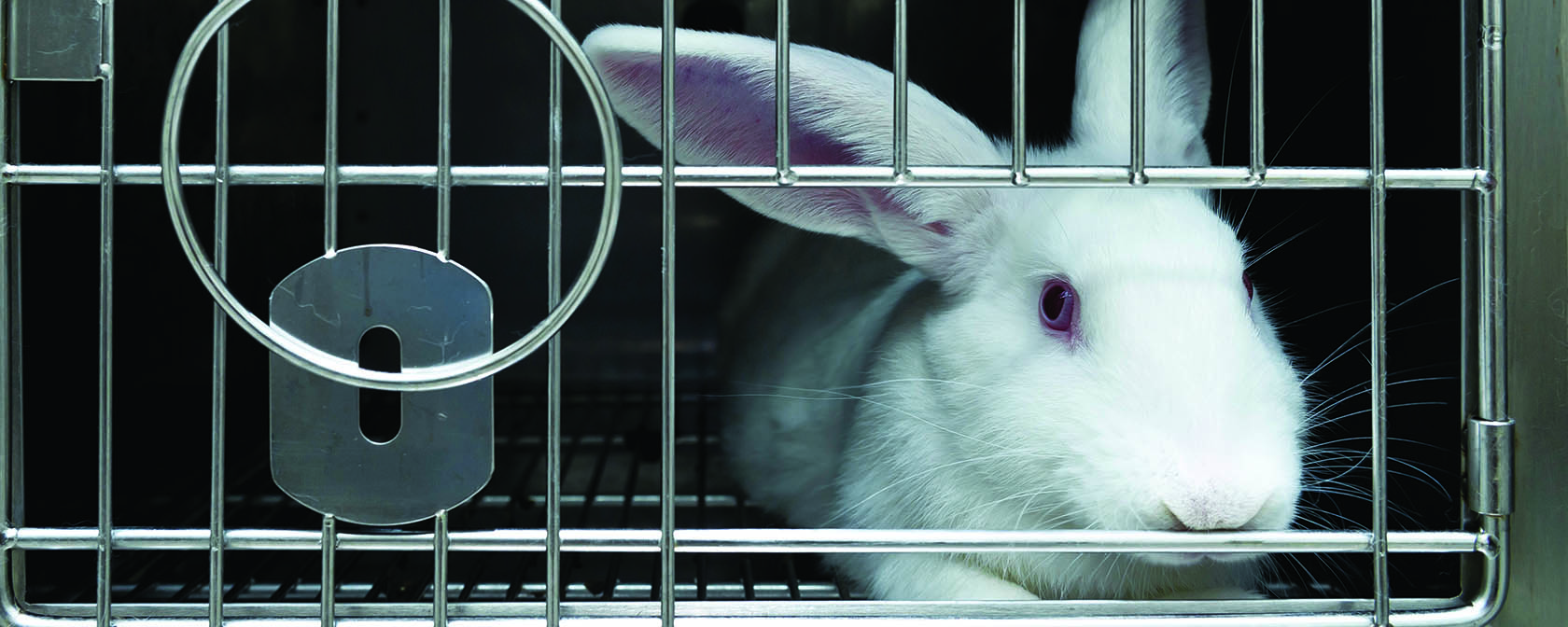By Sara Amundson and Kitty Block
Momentum for passing a federal law against animal testing for cosmetics continues to grow, with some of the strongest support coming from the industry that makes and markets these products. This week, we reached an important milestone with 300 independent companies now officially endorsing the Humane Cosmetics Act, in addition to nearly 600 member companies of the Personal Care Products Council, which also supports the bill. The measure would, with certain exceptions, end all animal testing for cosmetic products and ingredients in the United States and prohibit the import of cosmetics that have been tested on animals anywhere in the world.
Most of the endorsements come from small businesses that are already proving that high quality cosmetics can be formulated without testing on animals. But the list also includes industry heavyweights such as Unilever and P&G, and known brands such as H&M and LUSH.
This is just the latest achievement in our efforts to engage with industry leaders to make the United States the next cruelty-free marketplace. The Humane Society Legislative Fund and the Humane Society of the United States worked closely with the Personal Care Products Council, the leading national trade association representing hundreds of cosmetics and personal care products companies, to propose language for the Humane Cosmetics Act. The bill has already been introduced in the House and the Senate, with sponsors from both sides of the aisle.
Consumers are increasingly demanding cruelty-free products, and a growing number of countries—and three U.S. states—have moved to end cosmetics testing in recent years. Cosmetics companies are already obliged to comply with laws in California, Nevada and Illinois, which ban the sales of cosmetics newly tested on animals. Nearly 40 nations, including member states of the European Union, Australia, Guatemala, India, Israel, New Zealand, Norway, South Korea, Switzerland, Taiwan and Turkey, have also passed laws prohibiting or limiting cosmetics testing on animals, thanks in no small part to the efforts of Humane Society International and its partners worldwide.
What further strengthens the argument against such tests is the fact that they are absolutely unnecessary. Cosmetics companies can choose from thousands of ingredients that have a history of safe use to create new and innovative products the cruelty-free way. For new ingredients, animal tests are increasingly being replaced with non-animal methods that are often quicker, cheaper and more reliable as predictors of toxicity in humans.
But there is a more fundamental reason to replace conventional animal tests for cosmetics products like shampoo and mascara—the tremendous suffering they cause as rabbits, mice, rats and guinea pigs have substances variously forced down their throats, dripped into their eyes, or smeared onto their skin. They are often left to suffer for days on end without any pain relief.
Each one of us has the power to accelerate the shift toward non-animal testing methods, by becoming a more compassionate consumer. Use the Leaping Bunny guide, a list of cruelty-free brands compiled by the Coalition for Consumer Information on Cosmetics (of which the HSUS is a founding member), to ensure your cosmetics and personal care, household and pet care products aren't tested on animals.
We also need your help in getting the Humane Cosmetics Act over the finish line this year. Please contact your Representative and Senators in Congress and urge them to cosponsor the bill if they haven’t already, and do all they can to get it enacted quickly. With so many Americans already flocking toward cruelty-free products, and so many companies endorsing change, there has never been a better time to end the misery of cosmetics testing for good.
Contact your members of Congress and ask them to support the Humane Cosmetics Act >>
Kitty Block is President and CEO of the Humane Society of the United States.




